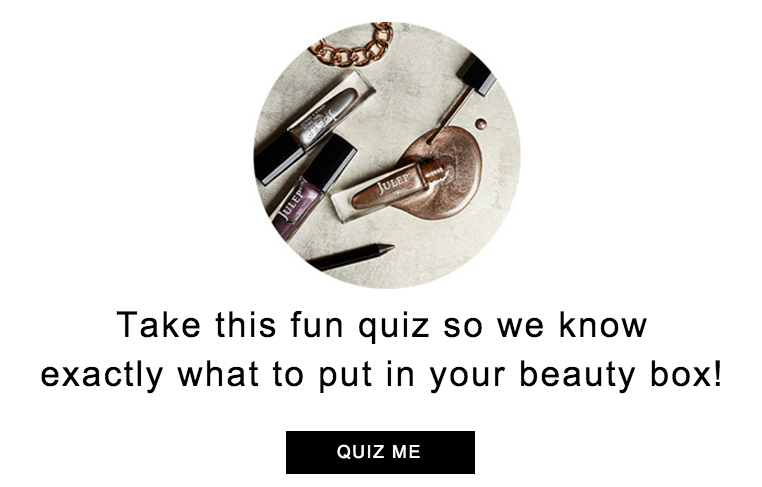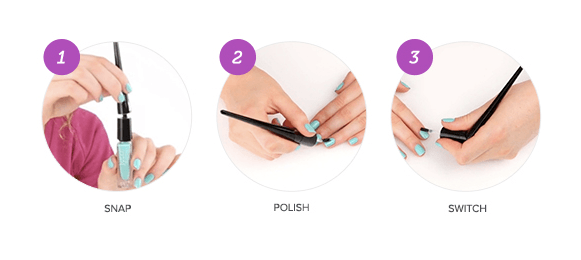Pandering to Beauty Junkies

How Julep uses its IdeaLab Crowd in Product Innovation
Providing Your Beauty Fix
Julep first made headlines in 2008 when it entered the cosmetics industry as an e-commerce delivery startup, providing a monthly box of Julep-branded cosmetics to subscribers’ homes. Subscribers are referred to as “Julep Mavens” and can be described as your typical beauty junkies, who spends a significant portion of discretionary income on nail polish, makeup, skincare products, and haircare.
Not every JulepMaven receives the same box each month; the subscription model is customized based on the customers’ preferences to increase likelihood of satisfaction, while providing the delight of a personalized experience.
In addition to the subscription model, Julep also manages an online store at Julep.com where Mavens and non-Mavens can purchase the wide array of Julep products at any time.
Giving Beauty Junkies a Voice
In 2014, this Andreessen Horowitz-backed cosmetics company launched IdeaLab, an external-facing crowd that allowed Julep Mavens to join their product-development process. According to the company’s website, they have a team of 5,000 product developers sourcing new ideas for Julep products. The IdeaLab crowd then provides as a sounding board giving feedback on top ideas from Julep’s team.
To join the crowd, customers simply have to add their email to the IdeaLab distribution list. Then, Julep R&D is allowed to reach out to the crowd for feedback as needed.
IdeaLab participants receive no additional products or services through the program. Instead, the strategy capitalizes on the fact that their customer base is passionate about beauty, and with that passion comes a desire to have their opinions on beauty products heard. Julep Mavens simply have an insatiable appetite for the topic, so opening up and responding to a second Julep email about their favorite pass-time is a pleasure, not a burden the company needs to compensate for.
Managing Their Mavens
IdeaLab crowd management is a simple task for Julep, as it relies on their existing capabilities of:
- Communicating to their Julep Mavens via email,
- Uncovering insights from large amounts of Maven data,
- And delivering prototypes to Mavens’ doors.
There are no added complexities of managing a community that interacts with each other; all communications are between Julep and the IdeaLab crowd.
Lead Junky Innovation
The IdeaLab is a lead user innovation strategy that provides tremendous value for Julep at minimal cost. The program:
- Provides the best product solutions via beauty junkies who are not only deeply aware of the pain points in need of product solutions, but also are likely to have thought of or invented product workarounds themselves given their lead-user status
- Quickens the product development process by providing real-time feedback without the need for slower more traditional market research techniques such as focus groups
- Reduces product development cost through software-driven scale through the elimination of aforementioned traditional market research techniques
- Keeps Julep Mavens deeply engaged with the company, thereby allowing Julep to stay top of mind with its best consumers, who are therefore more likely to supplement their monthly Julep box deliveries with additional purchases from Julep’s online store
IdeaLab’s First Product
After its one year in existence, the IdeaLab has lead to the market entry of one product, the Plié Wand, which is ergonomically designed to allow users to more easily paint their finger nails with their non-dominant hand.
Anyone who has painted their nails knows how hard it is to do so with your non-dominant hand. One can clearly see how this product innovation is customer-centric and pain point-driven. According to the company’s website, 4 out of 5 women said that the design of the Plié Wand makes it easier to polish your nails.
“Why was this not invented sooner?” – DaniG
Now the company is free to capture the value of its new IdeaLab product development process through sales of the Plié Wand on Julep.com and in its monthly Julep delivery boxes. I am sure we will see more such innovations out of the IdeaLab in the future.
Sources:







Great article! I think it’s smart of Julep to capitalize on these beauty mavens because at the end of the day, it will be these mavens who purchase the bulk of the company’s products. So I don’t see self-select bias being an issue here. I do wonder if eventually the mavens will want a piece of the success. Similar to Kickstarter, contributors can tire of contributing with little or no return. Passion may carry these mavens so far, but if others offer incentives, will they stay and continue to contribute? Just some food for thought 🙂
Really good case study! I definitely agree that crowdsourcing beauty is a great idea because you are essentially building out your customer base and engaging them in product development to get them invested in something long before it is on the market. This will help companies figure out what their customers really want, but it is interesting that they are taking creativity directly from the consumer and the consumer gets no credit in the end.
I like the consumers are made part of the creation process and given ownership (perhaps not in the form of equity upside but they are given a product that they wanted and did not exist in the marketplace), that is what I had recommended for Lime Crime, the company I wrote about, in order to increase the engagement of the crowds even more and create more loyalty. That would however be more in the realm of “what shades in what product category should i create next”. In Julep’s case I wonder if the products that get created are too niche-y and don’t have any further sale potential that that core group that helped create it (aka will they ever make money with this strategy). My guess would be that they will have to come across some sort of “Pebble Watch” of the beauty industry to win big with a couple blockbusters but the majority of the products will probably be too niche-y. Which may be not a bad strategy after all 🙂
Really cool post! I agree with JP that eventually Julep may need to provide incentives for the mavens, particularly because I think it’s likely that most of the input that the mavens provide through the process won’t turn into something tangible in the market. For example, after a year, only 1 product has come out of IdeaLab. For those people who didn’t contribute to the product that the company selects to go to market, it can get fatiguing to contribute on their time and feel like their input always ends up not being used.
Very interesting post, thank you for sharing. I agree with Nazli that products coming out of the IdeaLab might be to niche to gain traction. Mavens are a great source of testing and improvement on existing products, but I am not sure if they can be a source of the next big thing in beauty. Julep would still need to think about big inventions and breakthrough formulas, especially when creating beauty products requires an extensive knowledge of chemistry and biology. Finally, it would be interesting if Julep could turn IdeaLab to engage chemists and experienced beauty professionals to brainstorm new products and formulas. Successful ventures could be later vetted by Mavens and some of them would become a commercial success.
Love the concept! I am a junkie myself so couldn’t help to take the quiz and give it a try. Nevertheless, I also wonder if their strategy will ever take them to a “mainstream” position in the market. It’s true that they have a privileged position to do faster, more efficient product development. Nw they need to develop more traditional distribution channels to grow their sales volume and leverage their outstanding design capabilities.
To everyone’s point about consumers sharing in commercial success, I think there’s an analogy in licensing art. I have a friend who is a designer for a Hobby-Lobby-type firm, and they often purchase designs from independent designers to use on their products (such as figurines, place mats, carpets, you name it!). The artist gets a stream of royalty income, and the firm doesn’t have to pay in-house designers as much AND gets the cream of the crop, in theory, since they aren’t limited only to the designers they hire full-time. I could see Julep’s consumers potentially becoming freelancers, and maybe Julep would not have to have as many R&D people in-house. The only issue with this is that make-up is more about mixing chemicals than design.
This brings me to my next point. Given the backlash against cosmetics companies and the horrendous amount of toxins they put in our makeup, I wonder if there’s a way for consumers to design / create natural products and get licensed, given you can experiment in your kitchen?
Great post! I love the idea of crowdsourced beauty and the opportunity to democratize makeup because until recently, it was incredibly difficult for women of color to find foundation and other makeup that suited their skintones as big beauty brands dictated makeup shades and created them for Caucasian skin. I agree with the concerns raised above that Julep mavens may not have the same interests/desires as the mainstream market. Continued user engagement may also be an issue – the reward for mavens’ participation is being able to purchase products they want to own, but the post notes only one new product to come out of the IdeaLab in the past year, which makes me wonder if mavens may start to lose interest in participating if their product wishes don’t come to fruition soon.